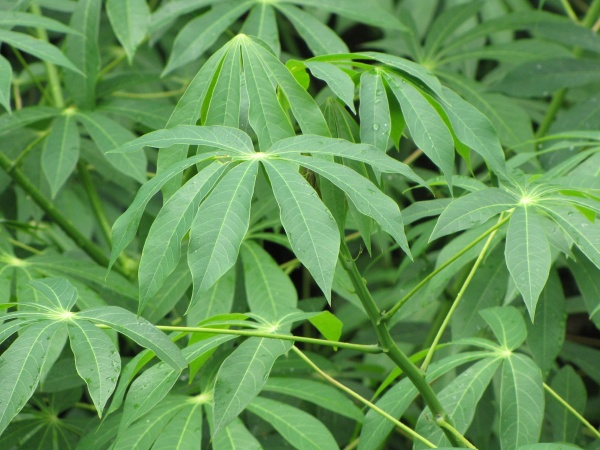The Federal Government has commenced strategies to develop cassava leaves value chain into livestock feeds to curb farmers-herdsmen clashes in the country.
Chief Audu Ogbeh, the Minister of Agriculture and Rural Development, said this at a seminar on ‘Unlocking the Potentials of Cassava Leaves as Livestock feed in Nigeria’ in Abuja on Thursday.
He said the seminar, organised by the Agricultural and Rural Management Training Institute (ARMTI), was a wake-up call for stakeholders to deliberate on harnessing the potentials of cassava leaves.
Represented by Dr Egejuru Eze, Director, Animal Production and Husbandry Services in the ministry, Ogbeh said that the livestock industry had been bedevilled by stagnant practices hence, the clashes.
The minister said that livestock had the potential for increased productivity, including milk yield and body weight, when fed with cassava leaves.
According to him, cassava leaves has been found to be a good source of crude protein when made into silage.
Ogbeh said that the cassava leaves value chain would also create jobs for youths and enable farmers make more money from the sale of the leaves.
“Nigeria is the largest producer of cassava in the world with a production figure of 50 million metric tonnes.
“Cassava is a major food crop in Nigeria.
“It is strategically valued for its role in food security, poverty alleviation and a source of raw materials for agro-allied industries in Nigeria with huge potential for export market.
“It provides livelihood for over 30 million farmers,” the minister said.
Dr Olufemi Oladunni, Acting Executive Director of ARMTI, said the institute’s mission was to identify problems and develop appropriate interventions to improve managerial practice in the agricultural sector.
“We gather policy makers, academics, practitioners and other stakeholders to facilitate a constructive discussion on policy development to tackle pertinent issues in agriculture.
“The incessant farmers and herdsmen clashes, the grossly below optimum yield in livestock production and constant price hikes and scarcity of livestock products need speedy action.
“If we tackle agriculture challenges with effectiveness and efficiency in our practice, the scarcity of food, inflation, poverty, unemployment of youths will be minimal,” he said.
In a lecture, Prof. Dolapo Lufadeju, an agriculture development consultant, said Nigeria is the world’s largest producer of cassava, producing 50 million metric tonnes annually and providing livelihood to millions.
Lufadeju said that the initiative of cassava leaves to feed livestock would encourage men and women and create employment for the youth.
“Cassava is a major staple crop that can be used to promote rural industrialisation, starch, adhesive, exotic food, condiments and proven export foreign exchange earners.
“It can be successfully grown in marginal soil, hardiness and tolerance to adverse conditions,” he said.
He added that the world cassava production was about 165 million metric tonnes per annum and about 50 per cent was produced by Nigeria, Brazil, Thailand and Zaire. (NAN)


